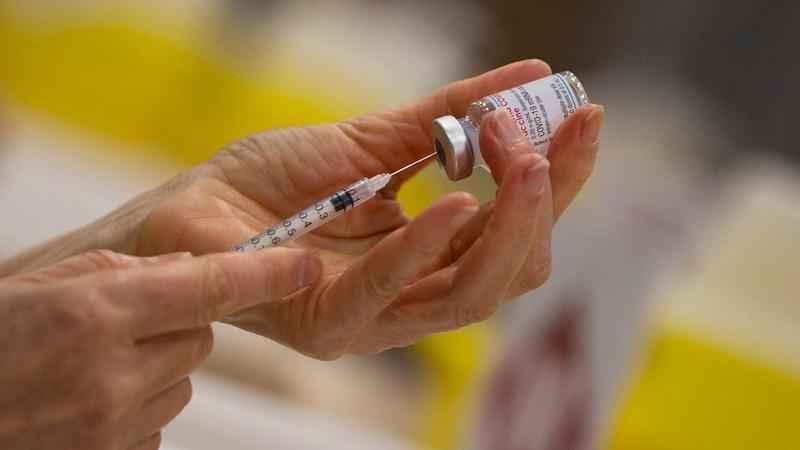U of M research shows effectiveness of COVID vaccine for those who’ve recovered from the virus
[anvplayer video=”5062098″ station=”998122″]
Over the last year, researchers at the University of Minnesota Medical School have studied the effectiveness of the mRNA vaccines among people who’ve previously had COVID compared to those who didn’t contract the virus.
Moderna and Pfizer are the two mRNA vaccines.
“The people who didn’t have the prior infection and got the vaccine, we know from the clinical trials you have 90% protection so they’ve got a big life jacket,” said Dr. Marc Jenkins, the director of the Center for Immunology at the Medical School. “The people that have prior infection and then got two shots they have a really big life jacket. They’ve got a life jacket on a life jacket.”
Dr. Jenkins said they looked at memory B cells in 48 people. He explained the cells are generated by an immune response.
“They’re specific for either the infection or the vaccine,” Jenkins said. “If they are exposed to the vaccine or the infection in the future, they will rapidly proliferate and make lots of antibodies.”

In this file photo dated Wednesday, April 14, 2021, a pharmacist fills a syringe from a vial of the Moderna COVID-19 vaccine in Antwerp, Belgium.[AP Photo/Virginia Mayo/File]
He said memory B cells are responsible for the booster effect.
“It’s likely that the number of these memory B cells together with the amount of antibody that you had from your prior responses, are what are going to determine whether you’re immune or not,” Jenkins said.
Jenkins worked with Dr. Kathryn Pape and others to analyze the response to the vaccines among those who’ve recovered from COVID. The researchers determined individuals who got the vaccine after the virus generated about six times more memory B cells following the first dose.
“Pretty much everybody who had a prior infection responded like gangbusters to the first shot,” Jenkins said.
About three out of four of those individuals had a weaker response to the second dose. Overall, they still responded better than those who never had COVID, according to Dr. Jenkins.
“The previously infected people went up to 600 of these memory B cells per million after the first shot,” he explained. “They kind of stayed thereafter the second shot but that still gave them 600 cells per million compared to someone who had no prior infection and got two shots, they ended up at about 150 per million. Previously infected people who got the two-shot series had quite a few more memory B cells than people who hadn’t.”
He believes the research underscores the benefits of being fully vaccinated.
“Especially in the delta era, where this delta variant is, of course, the main virus that’s in circulation now,” Jenkins said. “The more memory B cells you have, the more likely are to have ones that will cross-react on delta. That’s another reason I think for people who had a prior infection to get vaccinated, especially since we don’t know which virus they had for the prior infection.”